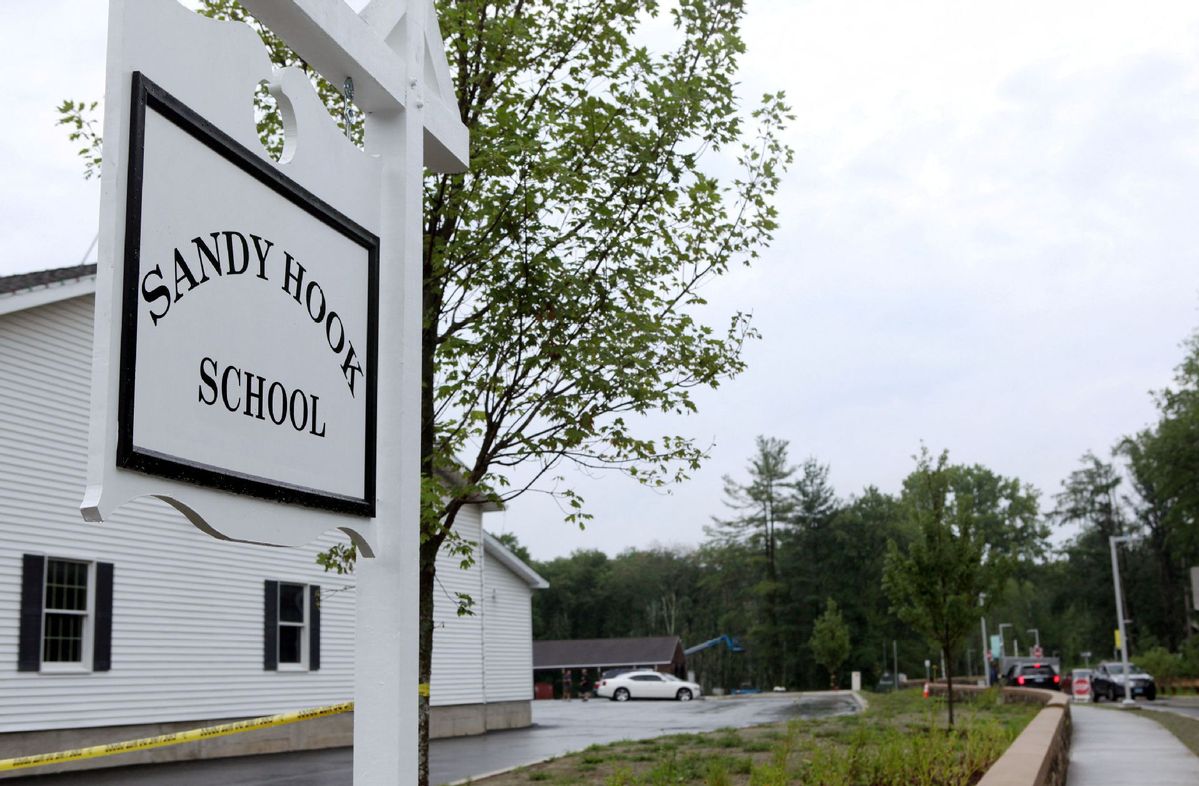Gunmaker settlement could spark similar suits
By MAY ZHOU in Houston | chinadaily.com.cn | Updated: 2022-02-24 12:33

The $73 million settlement between the families of nine victims of the Sandy Hook Elementary School lawsuit and gunmaker Remington found a novel workaround of a federal shield for gunmakers. But there is disagreement on whether it will have an impact on similar lawsuits.
Timothy Lytton, a law professor at the Georgia State University College of Law, told USA Today that "whether or not the Sandy Hook lawsuit will be a viable strategy for other plaintiffs remains unanswered".
Josh Koskoff, lead lawyer for the plaintiffs, had said the settlement should serve as a wake-up call to the gun industry and its financial backers.
"For the gun industry, it's time to stop recklessly marketing all guns to all people for all uses and instead ask how marketing can lower risk rather than court it," Koskoff said at the news conference announcing the settlement on Feb 15.
Koskoff said that the gun industry and their underwriters, the insurance companies, cared only about money. "So, it's really important they get a lot of damages because it has to be something that gets attention of the industry."
The Sandy Hook Elementary School shooting in Newtown, Connecticut, occurred on Dec 14, 2012, when Adam Lanza, 20, shot and killed 26 people, 20 of whom were children between the age of 6 and 7. Earlier that day, he shot and killed his mother at their home and then fatally shot himself.
The National Shooting Sports Foundation, a gun rights advocacy group, issued a statement on the settlement looking to downplay its impact by emphasizing that Remington, which filed for bankruptcy in 2018 and 2020, is no longer in existence, and that Remington "would have prevailed if this case proceeded to trial".
"This settlement orchestrated by insurance companies has no impact on the strength and efficacy of the Protection of Lawful Commerce in Arms Act (PLCAA), which remains the law of the land. PLCAA will continue to block baseless lawsuits that attempt to blame lawful industry companies for the criminal acts of third parties," the statement said.
PLCAA, passed in 2005 and signed by President George W. Bush, provides a broad shield for gunmakers and sellers from liability for any harm as a result of criminal and unlawful misuse of firearms.
However, PLLCAA offers some exceptions if the plaintiff can show a violation of federal and state law applicable to the sales and marketing of firearms.
The Connecticut consumer protection law makes it illegal to market a product in an unethical, unsafe or immoral way, and the lawsuit was cleared in court under that premise.
While acknowledging that the settlement offers some encouragement to those trying to sue gun manufacturers, Lytton said he is unsure whether it will open the floodgates for future litigation.
"We don't know whether or not this is a viable strategy for other plaintiffs because the ultimate question of whether or not this lawsuit qualifies for an exemption remains unanswered," Lytton said.
He said that at least half the states in the country are not looking for ways to liberalize or open the door to litigation. Rather, "they're looking for ways to expand gun rights and clamp down anything that would restrict supply", Lytton told The New York Times.
President Joe Biden is leaning in the opposite direction of many states when it comes to gun laws.
"As I have repeatedly called for, Congress must repeal the Protection of Lawful Commerce in Arms Act so we can fully hold gun manufacturers and dealers accountable. But, in the meantime, I will continue to urge state and local lawmakers, lawyers, and survivors of gun violence to pursue efforts to replicate the success of the Sandy Hook families," Biden said in a statement.
"Together, we can deliver a clear message to gun manufacturers and dealers: they must either change their business models to be part of the solution for the gun violence epidemic, or they will bear the financial cost of their complicity," he said.
Jacob Charles, executive director for the Center of Firearms Law at Duke University, said the settlement has set a precedent for other states, even though it might not have happened if Remington were still making firearms.
The precedent set was twofold, Charles said. It is really a large settlement, and "$73 million is a lot of money'', he said in a radio interview with Wisconsin Public Radio.
The last settlement by a gun manufacturer for gun violence was the Washington DC-area sniper case in 2004, before PLCAA was established. In that case, Bushmaster and a weapons dealer agreed to pay $2.5 million to the families of people killed in 2002 in Washington, Maryland and Virginia.
"This one is substantially more than that. [It can be] one of incentives for plaintiff lawyers for those who were harmed by gun violence," Charles said.
Secondly, the settlement will be used as the actual legal precedent. "Now that this case is over, there is no more rounds of appeals and liability findings so that the Connecticut Supreme Court's decision that a consumer protection statute can be a way to get around the PLCAA liability shield is going to be cited by plaintiffs in other lawsuits," Charles said.
























